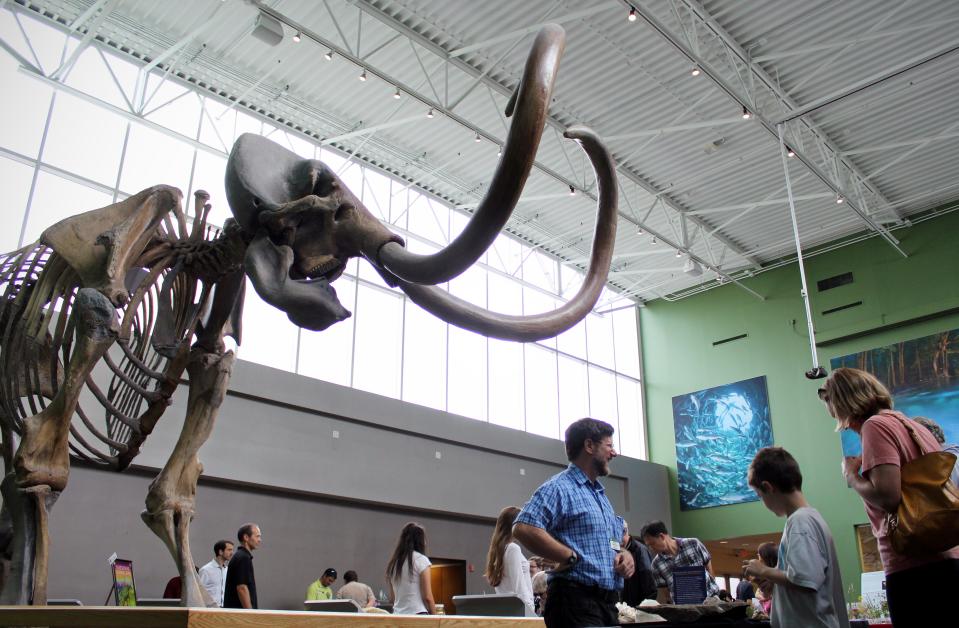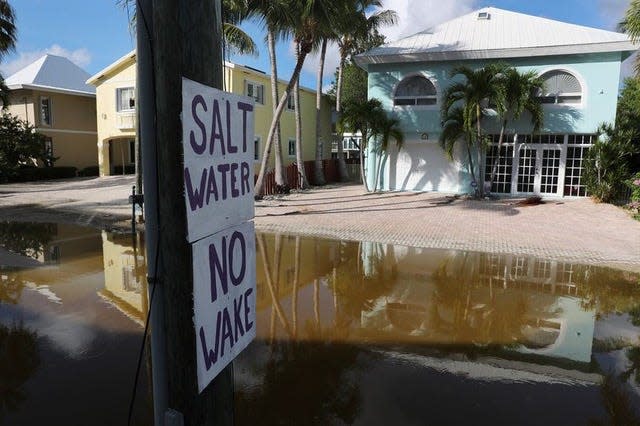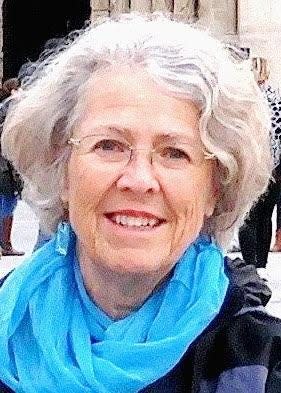Prepare for a huge migration to Alachua County, other impacts of climate change
When faced with bad news, how do we find hope? The answer proposed is “build community.”
A meeting last month, sponsored by the Interfaith Community of Gainesville, focused on the inevitable impacts of climate change in North Central Florida. The message is that knowing what will come prepares us to act effectively.
Community members from various segments of our city and county are working together to weather the storm. With scientific information, as well as empathy, we can move to an equitable, carbon-neutral future. But it won’t be easy.
Dr. Harold Wanless, a climate scientist from University of Miami’s department of geography and sustainable development, spoke at Gainesville’s Temple Shir Shalom. He brought dire news to those attending the event, “How Sea Level Rise in South Florida Could Drown Us in North Florida.”
Yet, Wanless’ goal “is to provide the future climate reality clearly so that individuals and communities can have a realistic hope and can plan what to do individually and collectively to make a difference.” This meeting urged audience participants to continue this conversation.
Wanless’ visit to Gainesville is part of an ongoing climate conversation started long ago in this community. Barry Jacobson of Solar Impact commented that he has been working in the solar business since the 1980s. Ellen Siegel, climate refugee and president of Woodstock Wisdom, organized this event. She and others are more recent participants in Gainesville’s conversation.
Gainesville chapters of organizations like Citizens’ Climate Lobby, Climate Reality Project, League of Women Voters of Alachua County, Sierra Club, NAACP Environmental Justice and Climate Justice, Environmental Ambassadors and others have joined this conversation, moving it forward. Both the Harn Museum of Art and Florida Museum of Natural History have featured exhibits focused on climate change, bringing awareness and diverse perspectives to visitors.

The conversation needs to continue. Wanless’ warnings demand action. The urgency of discussing, planning and cooperating is right here, right now. The impacts will affect all of us. The community must face and address climate impacts with equitable solutions for all.
As Wanless said, “The problem is, you first must understand the reality of what is before us, the urgency with which adaptations will be needed, and the critical mitigations that must be tackled.”
When Wanless graphs the future, he considers many regional influences on sea level rise, for example changing ocean currents and redistribution of earth mass following ice melts. Consequently, his rising sea level projections are higher than other models.
He provides data showing that in “less than a mortgage cycle” rising sea levels will reach three feet based on ice melt alone (one foot has already occurred). At that level, the western barrier islands and western portion of South Florida counties will face challenges including saltwater intrusion, the loss of fresh water and failure of infrastructures

Wanless advises that homes below 10-foot elevation will soon be unsellable and vulnerable to flooding. For Gainesville and Alachua County, he warns of a huge migration of people. South Floridians will need to move elsewhere. Because our part of the state will not suffer rising sea levels, ours will become a destination for others.
The planning committee for this event did not want to end this gathering with only such dire predictions. Ellen Siegel, former city commissioner Helen Warren and I, with input from many others, hoped to inspire the audience to share personal expertise with other audiences. Climate conversation needs to continue with people from all demographics.
Sharing ideas for lowering carbon emissions and suggesting actions to take will help others build resiliency while strengthening connections and building community.
More from Susan Nugent:
Take control of our future by transitioning to clean energy
Climate change produces positive and negative images in Florida, around the world
Protecting trees, promoting biodiversity in yards can help forestall climate change
One question that needs answering is, “What needs to be done to keep Gainesville the place you want to live?” A second question, of course, is, “How will each of us help accomplish this?”
Corporate communities, educational communities, faith groups and all levels of government need to tackle these two questions. We all have a responsibility to keep Gainesville a place we value.
With science giving us insight into our future, working cooperatively becomes even more necessary. Realizing how quickly we must address the increased fossil fuel emissions in our atmosphere, we must find equitable solutions.

We need to share what we know, to continue this conversation, to listen to others, and together build a strong, broad-based, resilient community.
Susan Nugent is a Climate Reality Project leader from Gainesville.
Join the conversation
Share your opinions by sending a letter to the editor (up to 200 words) to letters@gainesville.com. Letters must include the writer's full name and city of residence. Additional guidelines for submitting letters and longer guest columns can be found at https://bit.ly/sunopinionguidelines.
Journalism matters. Your support matters.
Get a digital subscription to the Gainesville Sun. Includes must-see content on Gainesville.com and Gatorsports.com, breaking news and updates on all your devices, and access to the eEdition. Visit www.gainesville.com/subscribenow to sign up.
This article originally appeared on The Gainesville Sun: Susan Nugent: Climate change will cause migration to Alachua County

